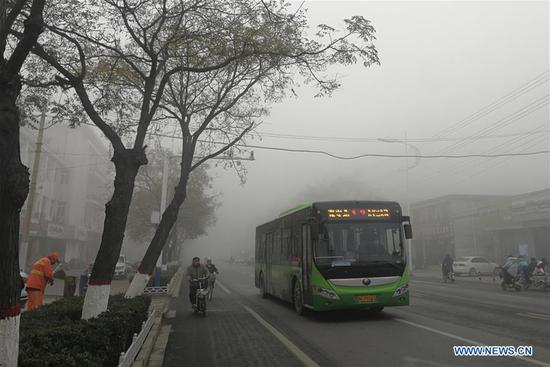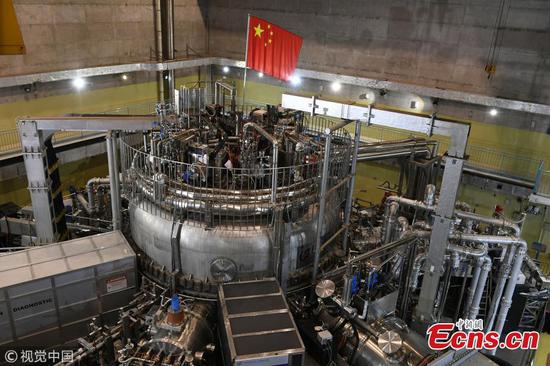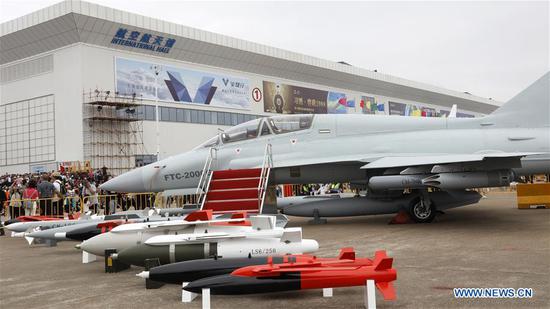Rather than sell into a depressed market caused by tariffs, U.S. soybean farmers are storing their crops hoping to eventually get a better price.
A bumper harvest and tariffs imposed by China on American exports in response to U.S. tariffs on Chinese goods have hit prices.
Austin Rincker, who grows corn and soybeans and raises cattle on a farm near Moweaqua, Illinois, said that farmers like him are facing stiff headwinds.
Rincker said that there are a lot of farmers looking for markets to sell their crops, and "they want to see the United States and China come to some sort of negotiation" over the current trade dispute.
Illinois is the leading soybean producing state. In 2017, Illinois farmers cultivated soybeans on 4.25 million hectares with an average yield of 23 bushels per hectare and a total production of 611.9 million bushels of soybeans, according to the state's soybean association.
Bloomberg reported that a bushel of U.S.-grown soybeans was going for $8.87 last week. Before the Chinese tariffs were imposed, that same bushel was selling for around $2 more, according to Bloomberg.
Amid trade disputes with the U.S. and rising tariffs, Chinese importers have switched to Brazil for soybean supplies, which led to sharp fall in Chicago Board of Trade soybean prices.
Soybeans rallied when China and the U.S. held their second diplomatic and security dialogue in Washington on Nov 9.
Before the talks, U.S. Ambassador to China Terry Branstad met Agriculture Secretary Sonny Perdue on trade issues. Branstad, a former governor of the key soybean growing state Iowa, expressed his hope to "develop a framework that can lead to an agreement" with China, the top buyer of U.S. soybeans.
U.S. farmers have constantly urged Washington to resolve trade issues with China as soon as possible, in order not to lose their biggest market.
Frayne Olson, North Dakota State University crop marketing economist, said most farmers and grain elevators in the U.S. have permanent storage facilities for their corn, wheat and soybeans.
However, if soybeans are stored at a high moisture level in temporary facilities without the ability to manage temperature and moisture, such as large white silage bags seen on many farms, the soybeans can deteriorate quickly, added Olson. Rincker's farm has aeration fans on the storage bins and "we can monitor conditions", he said.
Rincker said he will watch the market carefully. "We can store beans into 2020 if we have to. We would like to have the storage freed up by the fall of 2019 so we can store the 2019 crop," he said.


















































